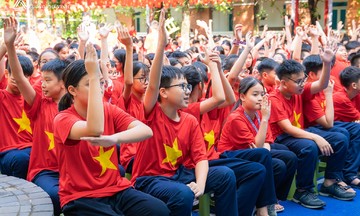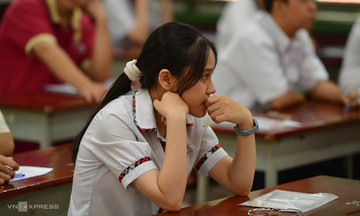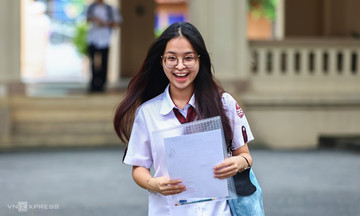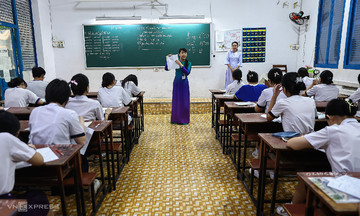Professor Nguyen Xien is considered one of the great intellectuals of the August Revolution. He held around 30 government positions, but considered his 40 years in meteorology his "most useful life's work".
As a founder of Vietnam's meteorology, he educated the public about weather phenomena, served agriculture, and provided crucial forecasts for revolutionary operations.
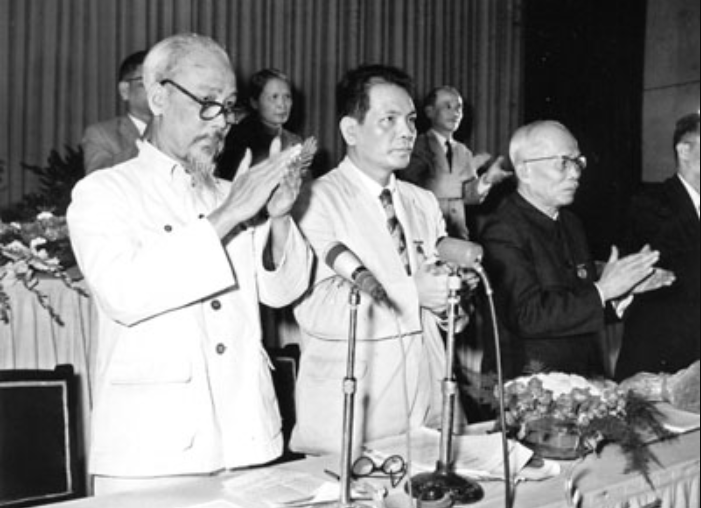 |
Professor Nguyen Xien (center) stands next to President Ho Chi Minh during the National Assembly session in 1957. Photo: Family archives |
Professor Nguyen Xien (center) stands next to President Ho Chi Minh during the National Assembly session in 1957. Photo: Family archives
Professor Nguyen Xien's path to meteorology was not direct. Born in 1907 in Nghe An, he topped the French baccalaureate exam and then studied math, physics, and electrical engineering at the University of Toulouse in France. Returning to Vietnam in 1932, he taught at private schools in Hanoi like Thang Long, Hong Bang, and Gia Long, but his income was unstable.
In 1937, Professor Beachet, Inspector General of Education of Indochina, recommended him for a position in meteorology. The retiring Director of the Indochina Meteorological Department needed someone with expertise in math and physics to improve forecasting. The job offered over 230 Indochinese piastres, plus a 20-40 piastre allowance, three times his teaching salary. For financial reasons, Xien accepted and trained at the Phu Lien observatory in Kien An, Hai Phong.
During his first six months, he learned about the field and taught a meteorology observer class to 5 trainees preparing to establish a station on Paracel Islands (Hoang Sa). Due to staff shortages, he was transferred to Saigon for the next four years. Returning to Hai Phong in 1941, he became the acting director of the Phu Lien observatory.
Working within the department, he realized that the forecasts, issued daily in French, primarily served the French.
"It makes no sense to create forecasts on the mountain while the people of Kien An below know nothing about them," he argued with the French director, advocating for training Vietnamese meteorological staff, but was refused.
This spurred him to envision a Vietnamese-led meteorological sector, managed and operated by Vietnamese professionals.
Aiming to "disseminate scientific knowledge in Vietnamese and prepare for the country's future education," he co-founded the Khoa Hoc (Science) newspaper in 1942 with Hoang Xuan Han and Dang Phuc Thong. Alongside teaching the national language in Hai Phong, he educated the public about rain, sunshine, storms, floods, Indochina's climate, and eclipses.
"I dedicated myself to preparing for the establishment of a Vietnamese meteorological sector, believing our country would need it, no matter the circumstances," he reflected.
After the August Revolution and independence, the government appointed him Chairman of the North Vietnam People's Committee and concurrently Director of the Vietnam Meteorological Department. He considered this the true birth of Vietnam's meteorology. His first task was overseeing the repair of vital dikes, including those along the Thao and Lo rivers, and sections of the Red River dike breached during the historic 1945 floods.
As the French escalated their aggression, most meteorological observers joined the army. In the Viet Bac jungle, amid air raid sirens and jet fighters overhead, Xien persisted in compiling a Vietnamese meteorological glossary and translating training materials.
"I worked, confident that the resistance would one day succeed," he wrote in his memoirs.
There, in 1947, despite limited resources, he wrote the first two university-level textbooks in Vietnamese: General Mathematics and Pure Mechanics. From 1951, he also lectured at the School of Basic Sciences and Advanced Pedagogy.
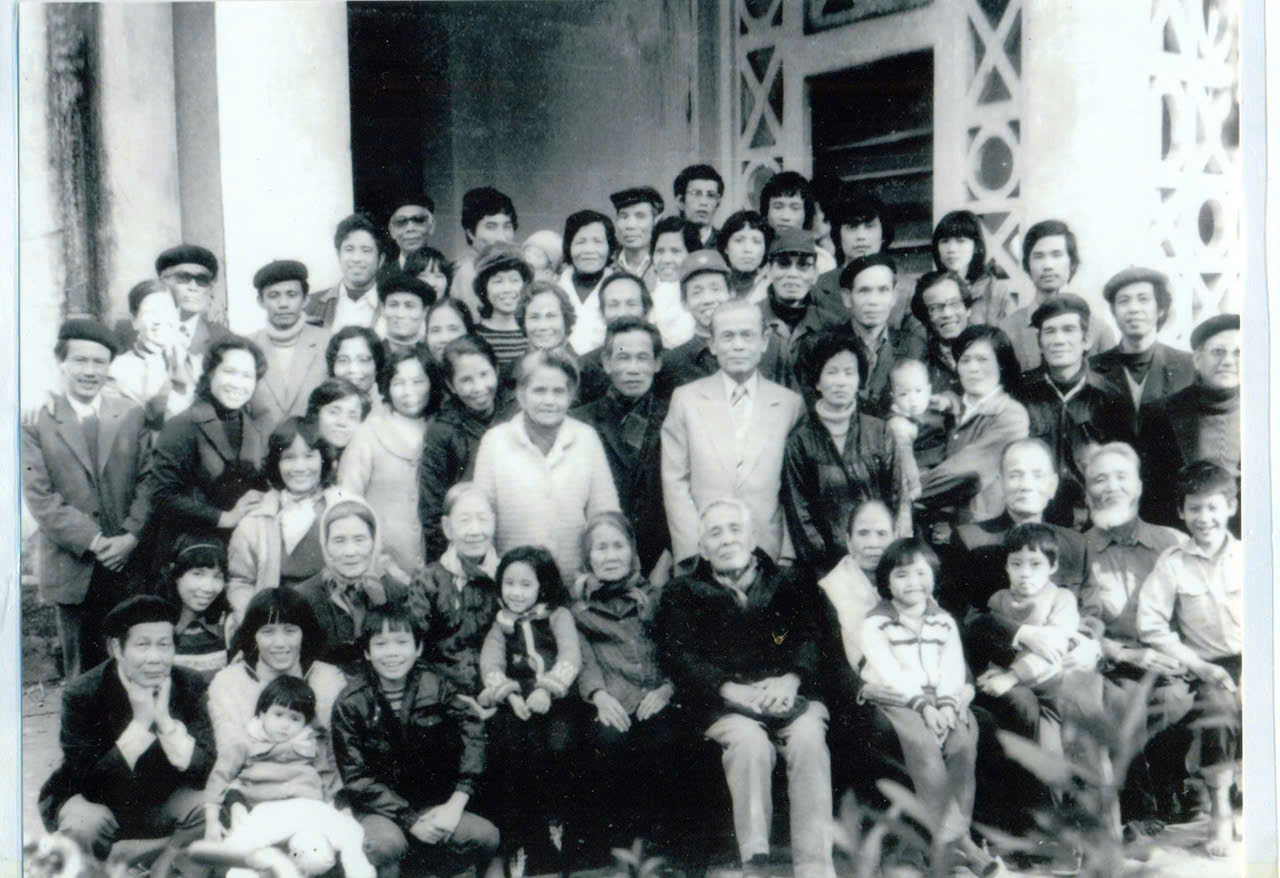 |
Professor Xien (gray suit, center) with meteorological staff. Photo: Family archives |
Professor Xien (gray suit, center) with meteorological staff. Photo: Family archives
Peace returned to North Vietnam in the summer of 1954, but the meteorological sector had to be rebuilt from scratch. Xien joined a Vietnamese friendship delegation to the Soviet Union and China, establishing connections with their meteorological agencies and obtaining training materials for Vietnamese staff.
He recalled those "intense" days, overwhelmed by the workload and dispersed staff. Lacking qualified personnel, he recruited basic science students for specialized training. Short of forecasters, he enlisted a surrendered Japanese military meteorologist who later adopted the name Nguyen Dong and joined the Communist Party of Vietnam.
When the first observer classes began in Hanoi in 1955, Professor Xien's first lecture was "What is a storm?". GS.TSKH Nguyen Duc Ngu, a student in that class and later Director General of the Hydrometeorological Service, recalled the sector's focus on "serving agriculture," combining modern forecasting with folk knowledge and weather observation.
During the American bombing campaigns, meteorology became another front line. Meteorological stations were targeted, forcing staff to balance observations, maintaining signal systems for the public and the revolution, with combat duty.
Regular forecasts ensured food security for troops and informed military operations, supply lines, and campaign launches.
Vietnam participated in international meteorological conferences, receiving equipment support from the Soviet Union, China, and Poland. According to Xien, these scientific exchanges helped break Vietnam's political isolation in the early years after the North's liberation.
In 1977, Xien left the Vietnam Meteorological Department, "making way for a younger generation with greater potential".
"With the support of friends and colleagues, and through my practical work, I feel qualified to consider myself a pioneer in building Vietnam's meteorology," he wrote in his memoirs.
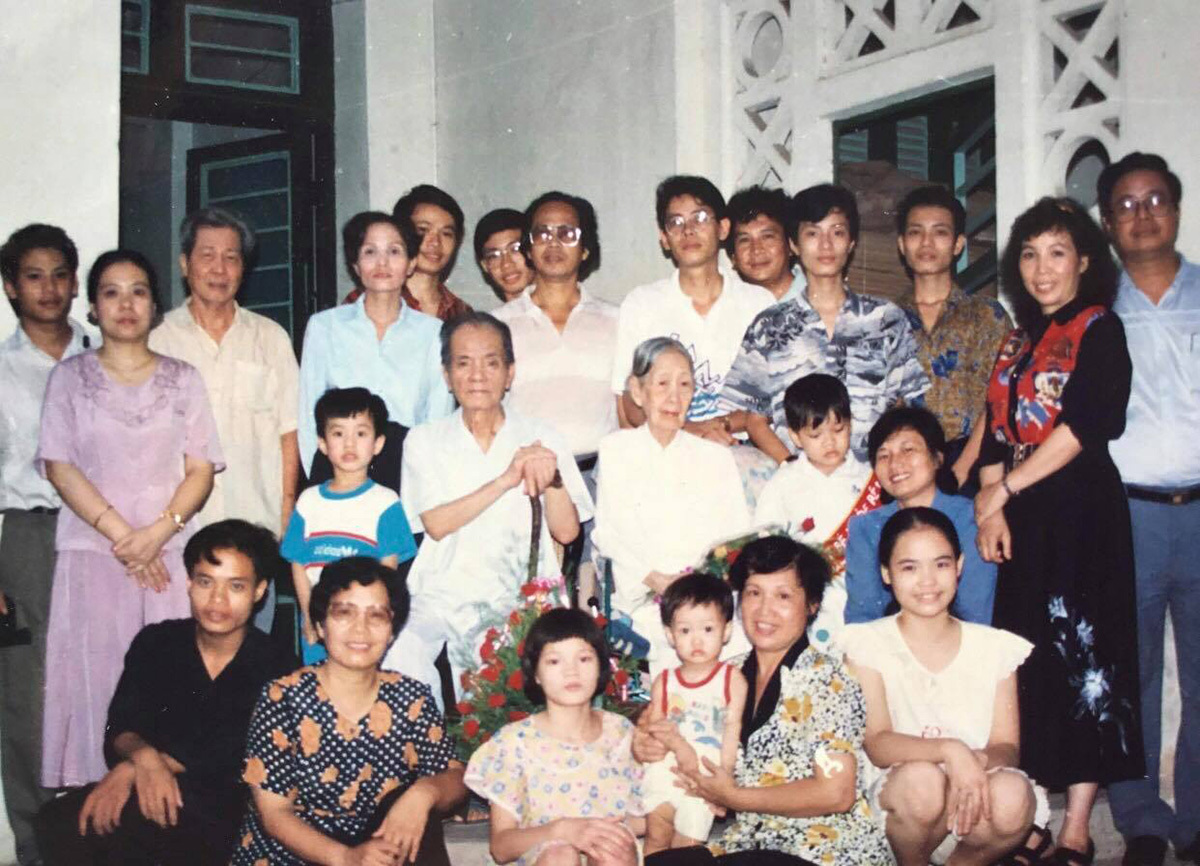 |
Professor Xien and his wife (seated in the center) with their children and grandchildren. Photo: Family archives |
Professor Xien and his wife (seated in the center) with their children and grandchildren. Photo: Family archives
In the Hydrometeorological Journal, 7/2007, Nguyen Duc Ngu highlighted two of Professor Xien's key contributions during his 40 years in meteorology.
First, his view on North Vietnam's climate. Some geographers, believing it to be subtropical, proposed raising sheep and cultivating wheat and potatoes instead of rice and sweet potatoes. Professor Xien, however, maintained that Vietnam had a tropical monsoon climate, organizing conferences to clarify its nature and characteristics. Science ultimately proved him right.
Second, calendar reform and advocating for the Gregorian calendar. Xien wrote in his memoirs that after independence, Vietnam restored the 7th time zone (previously the French used the 8th and the Japanese the 9th), but lacked a clear policy on official calendar usage. He repeatedly advocated for the Gregorian calendar, believing it essential for legal timekeeping in international documents and transactions and demonstrating Vietnam's stance on scientific and technical matters. He also acknowledged the cultural and ceremonial significance of the lunar calendar, but emphasized the need to combat superstitions.
Journalist Nguyen Luu, Xien's 7th child, now 84, remembers his father as an exemplary intellectual. Strict with his 9 children, he "never praised, no matter how pleased he was." He treated everyone equally, regardless of gender, and never sought privileges due to his position.
"Of my 5 brothers, 4 served in the army, and the eldest was a martyr. Only the youngest, who had asthma, didn't go," Luu shared. He described his father as disciplined and scientific, rarely falling ill. Even during evacuations, Professor Xien always woke his family on time.
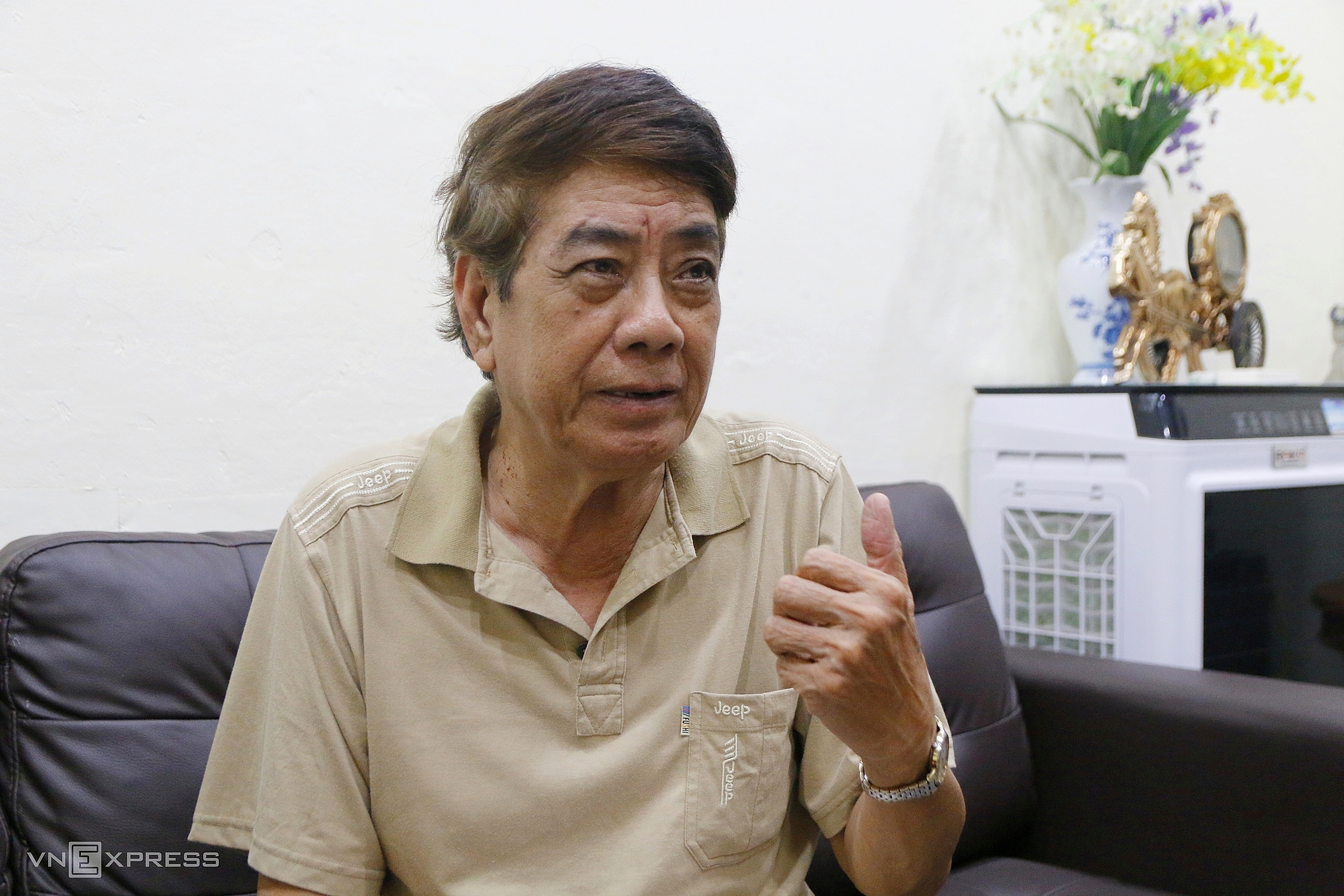 |
Journalist Nguyen Luu shares about his father, 8/2025. Photo: Thanh Hang |
Journalist Nguyen Luu shares about his father, 8/2025. Photo: Thanh Hang
Recognizing Professor Nguyen Xien's enduring contributions, poet Huy Can called him "the people's meteorologist". Residents of Kien An, Hai Phong, referred to Phu Lien hill as "Xien's hill" and affectionately called him "the astronomer".
In the condolence book upon Professor Xien's passing in 1997, poet To Huu acknowledged him as a great scientist who dedicated himself to building the meteorological sector and training generations of talent, writing:
"A lifetime watching wind and cloud/
Watching rivers, watching seas, building a life/
Wholeheartedly for the Country, for the People".
Professor Nguyen Xien received numerous prestigious awards from the Party and State, including the Ho Chi Minh Order and Award.
Thanh Hang



